Beyond Limits: Showing up for the love
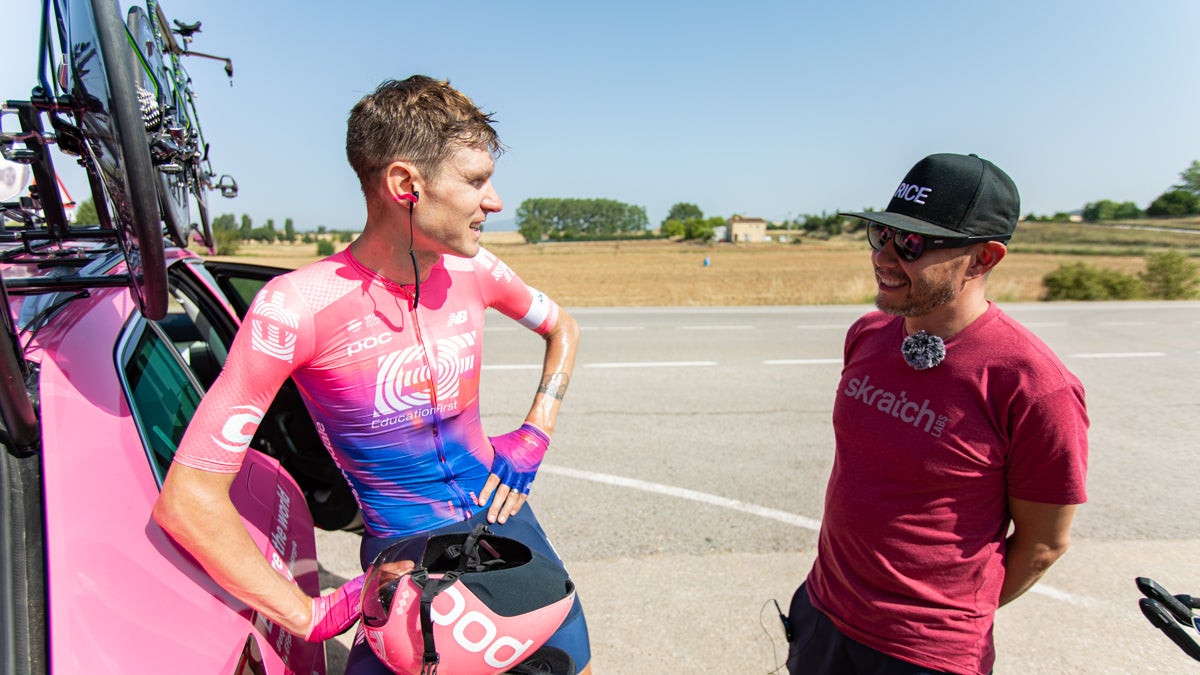
Rider and coach. | Photo: Greg Erwin
Editor’s note: Beyond Limits is a new VeloNews Voices project featuring Allen Lim, PhD, about the exploration of human performance and human possibility. This project is made possible by sponsorship from Skratch Labs and Saris.
As the Tour de France begins today in Brussels, Belgium, I am on my way back home to Boulder, Colorado. I have been coaching Tejay van Garderen this year, and the bulk of my work is done. As Tejay and his EF Education First team begins the Tour, I feel a sense of relief and satisfaction. As they get to work, I finally get to rest.
After a disappointing Tour last year, Tejay asked if I would coach him. My first response was a simple “no.” Since helping to start Skratch Labs in 2012, I haven’t worked professionally in cycling. While it’s easy to say that I’ve just been too busy, the reality is that my relationship with the sport is complicated and peppered with failure and trauma.
Working on the WorldTour is an emotional rollercoaster. When I left the sport after working as a coach and sport scientist for teams that included Phonak, Garmin, and Radio Shack, I was burnt, crispy, cracked, cooked, and done. I was all the things that weren’t happy or filled with love.
But I love cycling. I have ever since I first felt the sensation of two spinning wheels hold me upright. It was magic. It still is. When I left the WorldTour, I wanted to figure a way to avoid all of the crap associated with professional sports and nurture the magic. I figured that the simplest way to do that was to just say “yes” when my friends asked me for help.
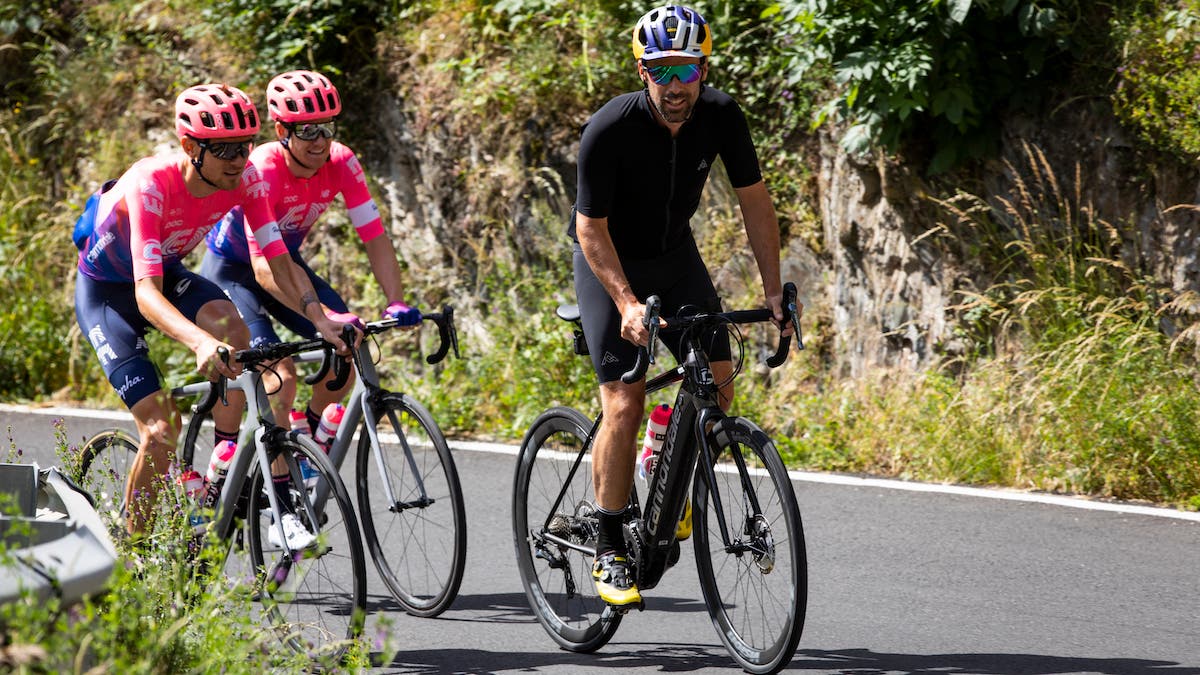
It just so happened that my friends were pro riders like Taylor Phinney, Tim Johnson, Alex Howes, Gabriel Pilote-Fortin, and Christian Vande Velde. When they asked for help, the deal I made with myself and with them was that I would help only if I could help – that they didn’t have to pay me, but they had to help with expenses and accommodate the fact that I preferred to stay close to home in Colorado.
The result was a yearly cadence of mostly spontaneous “summer camps” where I would facilitate supported training rides out of the Skratch Labs office in Boulder for riders from a wide array of teams to help them get prepped for different events, some of which included the Tour de France and the Olympics. We ran the camps like I did when I was on the WorldTour with support vehicles, motor-pacing, mechanics, therapists, a never-ending stream of philosophical discussions, and an even more ample stream of incredible food from chefs like Biju Thomas, Mary Frances Heck, and Gabe Kennedy.
It was a lot of work, but it was even more fun. I got to be involved on my terms, with people I deeply cared for, without having to worry about winning or losing. And while it was actually costing me and my team at Skratch a lot of time and money, it didn’t matter. I was okay calling what I was doing a “hobby” while dragging the rest of the company along, because getting to play – the joy, process, and the fun was an addicting reward. It was also nice to know that the training camps were temporary – nice to know that I could walk away at any point and that I could exercise my desire not to truly commit. For once in my life, I enjoyed the idea that if I wanted, I could be a total flake. I was a “Tinder” coach.
So, a year ago, when Tejay asked me if I would coach him, I instinctively swiped in whatever direction says no. I wasn’t ready for that kind of commitment. Mostly though, I didn’t have the confidence to coach a WorldTour rider through a full season again. But, after I said no, I asked Tejay this simple question – “what do you need to be your best?”
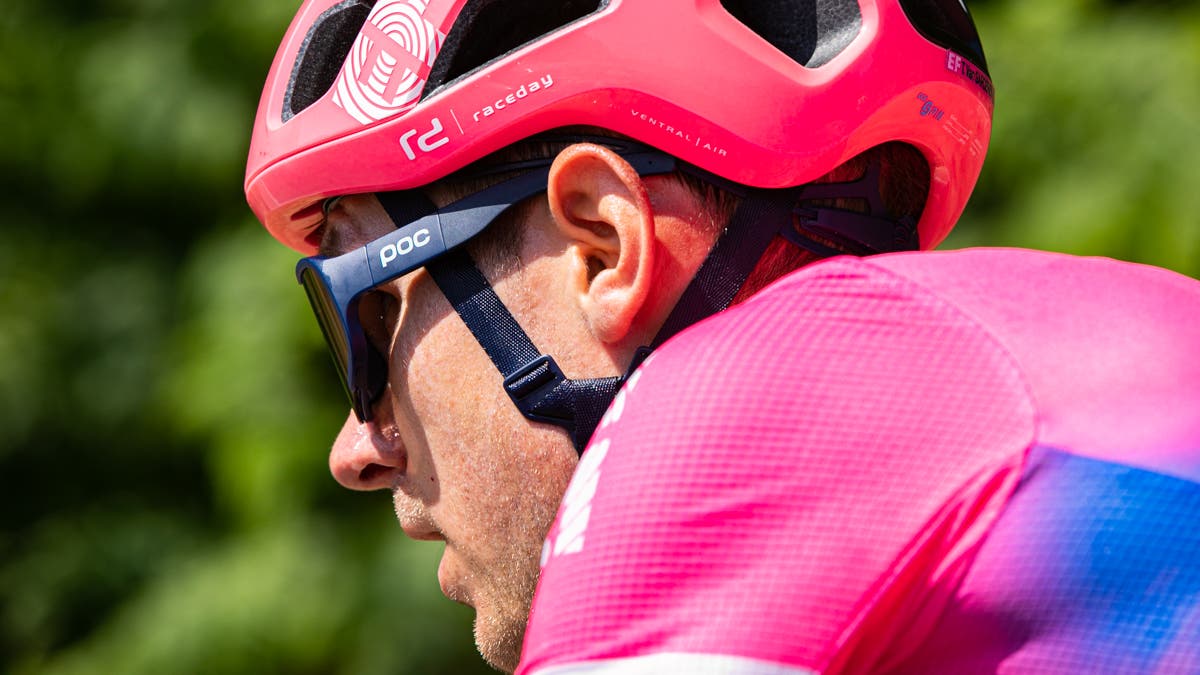
To my surprise, Tejay started telling me a story. He told me about how his family had tried living full time in Europe. But it’s hard being a foreigner in another country. It’s hard being stuck in between. It’s lonely being so far away from friends and family in a different country and culture. So, by early spring, they made the decision to move the family back to the United States. Tejay would stay by himself to take on the rest of the spring campaign.
That campaign went terribly. Nothing went to plan. By the time he made it to the Tour of California in May 2018, he just wanted to get through it so he could see his family at the end of the event. But his family decided to surprise him just before the individual time trial midway through the race. Within minutes of his time trial start, Tejay heard his five-year-old daughter yelling for him from behind the barriers. He immediately recognized her voice and ran over to give her a hug. They hadn’t seen each other for almost two months. As he embraced her, she began to cry and so did he.
But he had to race. Filled with emotion and with tears still in his eyes, Tejay launched from the start house, adrenaline coursing through his blood. He was going way too hard. And he knew it. So, he notched down his power output only to have the emotion from seeing his daughter lift it back up. He repeated this cycle a few times until he finally said to himself, “screw it.” He opened up the throttle and started flying. Tejay ended up winning the time trial (his first win that season) and taking the leader’s jersey.
After taking me through that emotional reunion and win, he then said to me, “what I learned is that all I need to be my best is love.” “All I need to be my best is love.” That line just kept on echoing in my head. I have no idea what Tejay said after that. I just kept on hearing, “all I need to be my best is love.”
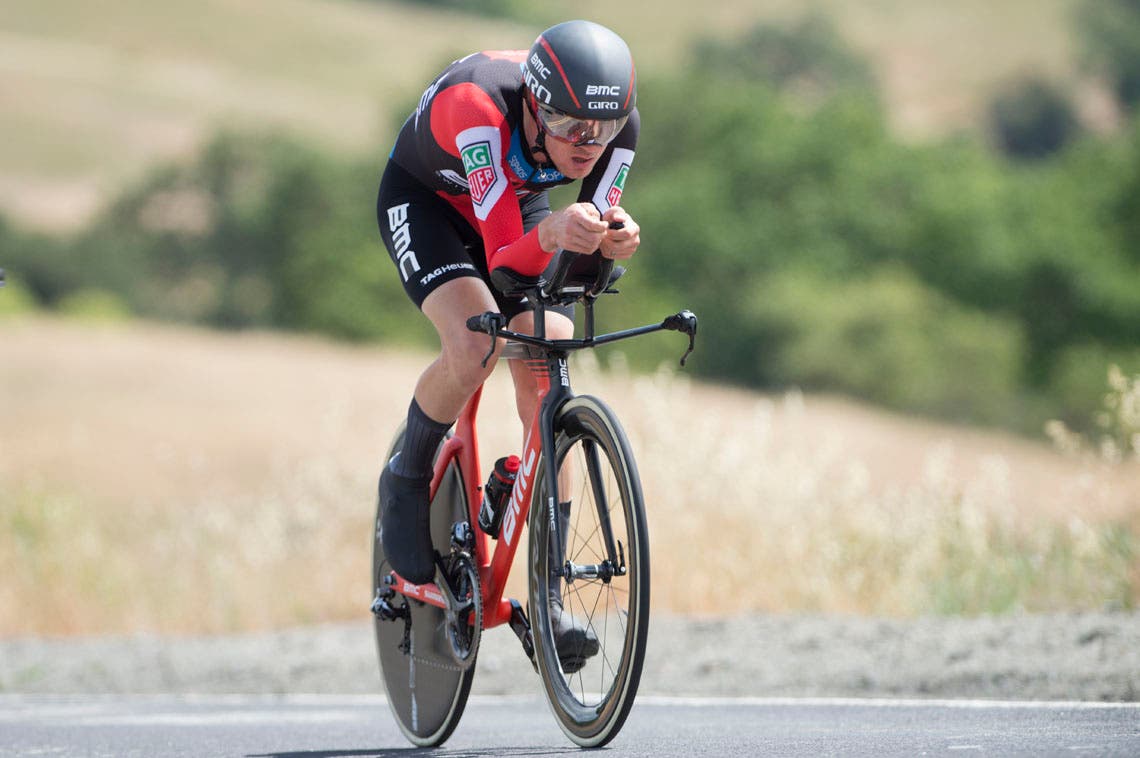
This wasn’t the Tejay that I thought I knew. And I suddenly realized that I wasn’t the person that I thought I knew. As much as I identify as an exercise physiologist or as a coach, I’m not. Those are just things I’ve studied and practiced on and off. Tejay reminded me that we are all people who just need love. Which meant that being a good scientist or trainer didn’t really matter. After spending my entire career trying to prove how good I am, I found that so relieving. If Tejay was telling me that all he needed was love, then as a human being, I knew I could do that. I knew I wanted to try. I knew that I still cared. I knew that was one thing that was worth getting right. “Okay,” I replied. “Okay. Let’s do this.”
Almost a year ago we started. Most of the training ideas were driven by Tejay. I just helped him get organized, listened, gave him feedback, and showed up. I showed up to help with anything that needed to get done. Whether that was sitting on a scooter to motor pace, making rice cakes, driving a follow car, shopping for groceries, working on logistics, or doing some math. The most amazing thing, however, was that others showed up too.
Chef Biju showed up to help cook. Walker Savidge, Tejay’s agent, showed up to fill bottles and drive a follow car whenever I was on the scooter. Tim Johnson showed up when we got this crazy idea to start e-bike pacing in the mountains and we needed someone with skills to be Tejay’s cyborg training partner. My entire team at Skratch Labs showed up to carry the extra load when I wasn’t around, giving me the gift of not having to worry about any of the day to day operations. In particular, Ian MacGregor, a former pro cyclist and our CEO at Skratch always showed up to let me know it was all okay and to make sure I had everything I needed.
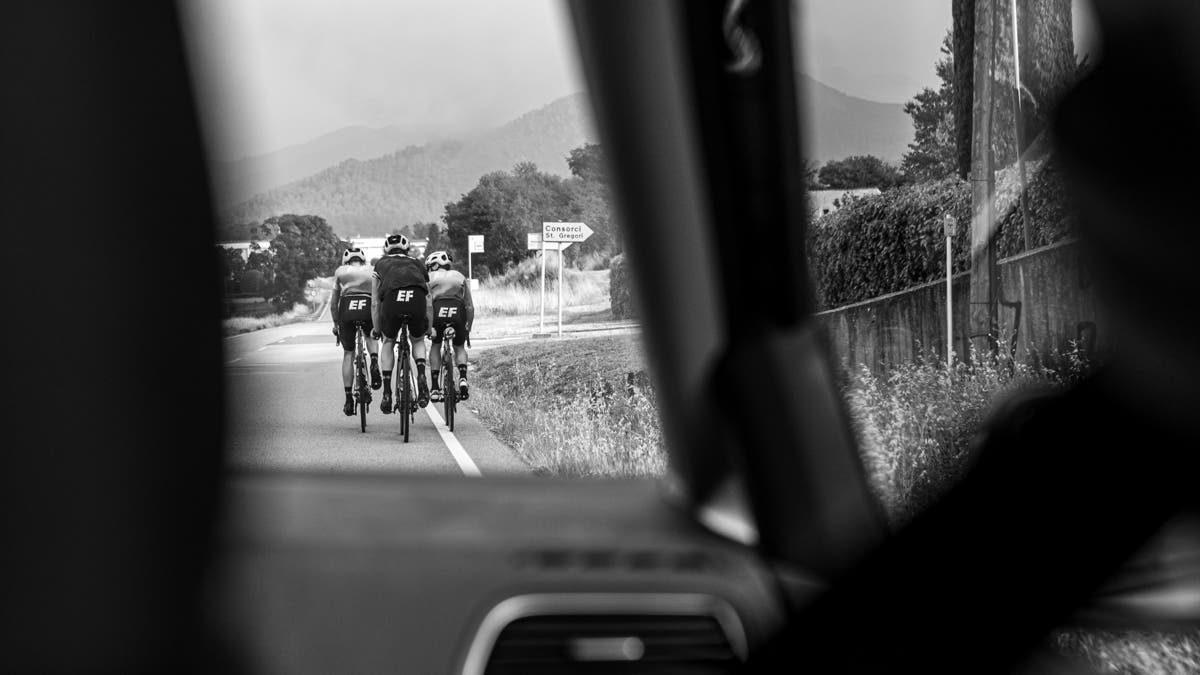
Dr. Jamie Bartlett, my doctoral classmate and a former Navy Physiologist who spent her career working with the Navy SEALS and Marines showed up to help execute on all of the sport science projects we wanted to try. Greg Erwin, Brian Co, Sami Sauri, and Ben Delaney showed up to document it all and to make sure, as friends, that we weren’t alone when it mattered the most.
Cheynna Treto showed up to gather all of the food and equipment I needed for our training camps in Spain. Taylor Phinney showed up, constantly checking in on me and his teammates, and then pacing Tejay and Mike Woods on their last big training day – their test day – even though he wasn’t on the Tour team and didn’t have to spend 6 hours melting in the 100 ˚F heat. So many people showed up. Thank you.
Most importantly, Tejay showed up. He did the work. He opened up. In his words, he went from being “mostly a dickhead – a 2 out of 3-star dickhead” to wanting to be much more. To wanting to be a better teammate, a mentor, and an athlete willing to give not just take. So when Tejay’s family showed up during the hardest days of our final mountain camp in Andorra ten days before the start of the Tour de France and I watched Tejay hug his daughters and kiss his wife goodbye before the start of each training day, there could not have been a better metric for success, for this last camp or this last year.
The training is done. I’m on my way home. The Tour de France is just the icing on the cake. But this year, instead of trying to eat that icing, instead of focusing on the daily results, I’ll be looking for something else as I watch the riders battle their way through France. I’ll be looking for those moments of love. It’s the only reason for something this crazy. It’s the only thing that will get the riders and their staff through to Paris. It’s the one thing we can’t do alone – the one thing we make together. The one thing worth showing up for.